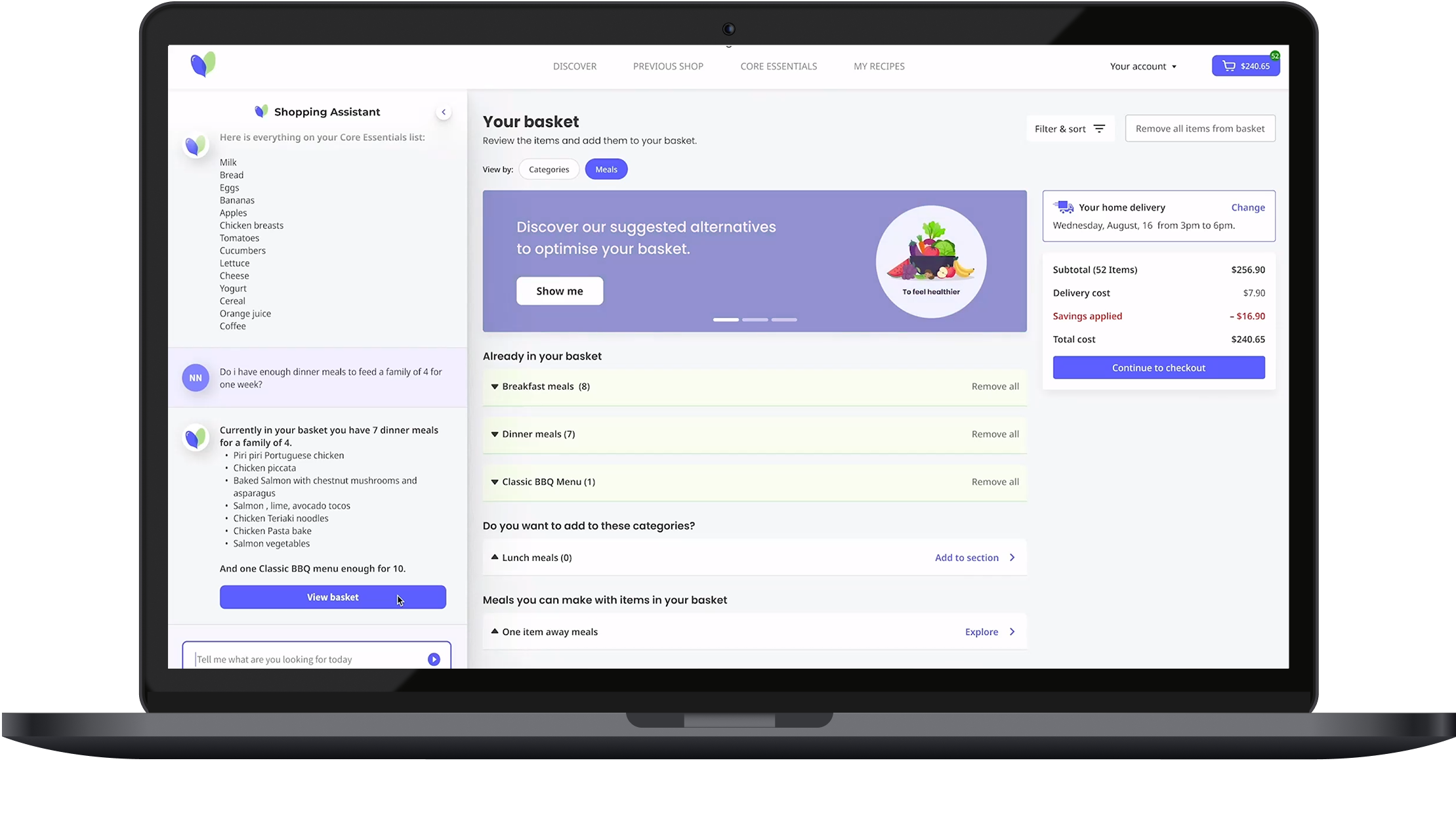Generative AI is powering new, personalized ways of shopping that have the potential to redefine retail by transforming the customer experience and growing both top-line revenue and bottom-line profits.
Despite the technology’s only recent mainstream emergence, already 52% of retail employees report using generative AI at work at least once a week, according to an Oliver Wyman Forum survey of over 25,000 employees globally.
Most consumers also welcome the prospect of AI-assisted personalized shopping, with only 39% stating they are not excited about its ability to predict their future needs based on their current behavior. Additionally, 56% are open to sharing more personal data for a better experience.
The technology arrived at the right time. Retailers are struggling to attract and retain customers as brand loyalty wanes. According to an earlier Oliver Wyman Forum survey, 73% of respondents reported not feeling strong connections or loyalty to a particular brand. While tool design and implementation can take time, generative AI can deliver the personalized experiences that customers crave and connect to. Here’s how retailers can harness that potential:
Enable hyper-personalization
Manually creating one-to-one personalized content can be difficult and time consuming, but generative AI can accomplish it quickly with its ability to transform large amounts of data into organized, coherent narratives. Most consumers want this hyper-personalization. Only 10% of digital consumers prefer the traditional static flyer to an interactive AI-powered flyer. Over half of respondents also want to receive a generative AI-produced marketing pamphlet that informs them of the best deals of the week based on their past purchases.

Digital flyers that leverage generative AI offer personalized marketing that draws in new digitally engaged customers, increase customer loyalty, and lift in-store spend
Hyper-personalization can increase engagement, purchase frequency, and basket size. When harnessing a cloud-based generative AI tool that generates personalized flyers, one company was able to increase its loyalty program enrollment rate by 14%, doubled click-through rates, and increased in-store total sales by 2% to 5%, according to an in-market test by Oliver Wyman.
Create immersive shopping experiences
Consumers also want to use generative AI to mirror in-store experiences. Roughly one-third of consumers said they would use generative AI to help them find the right size fit of clothing, allowing consumers to make more informed purchasing decisions without needing to visit a store. Additionally, 35% would use AI to preview items like furniture or appliances in their own home via uploaded pictures. Retailers can get greater visibility into customer preferences based on how they envision using their products.

Generative AI also promises to create more conversational and organic experiences online through its natural language ability. Instead of navigating traditional retail categories, shoppers can search by specific needs or scenarios, such as “hosting a football watch party” or “preparing a healthy weekday meal,” mirroring their actual thought process when deciding what to buy. They can also interact with virtual assistants with prompts like, “I’m looking for an outfit that I can wear to a spring wedding on the beach” or “I like the dress you recommended but not the shoes — can you find me something that would be easier to walk in?”
Shopping assistant chatbots offer customers an easier shopping experience through conversational commerce
Elevate customer service
Businesses can use generative AI to enhance their customer service and foster more brand loyalty. Sixty-three percent of respondents expressed interest in using generative AI to handle returns, exchanges, and order issues via chatbot, while 75% even said they would prefer or be indifferent toward using a generative AI customer service agent over a human.
Consumers might prefer generative AI over a human as a customer service agent because it is available around the clock and can reduce wait times by allowing human agents to tackle more complex issues. Indeed, “efficiency” is the top reason consumers prefer generative AI over humans, according to our survey. One in five consumers also report AI makes them feel supported during online shopping experiences, likely due to the ability of the technology to produce conversational and personalized language.
As they move towards implementation, it’s crucial for retailers to input the right datasets into their models and control the outputs, as inappropriate content can have significant repercussions in such a customer-facing role.
Generative AI not only improves customer service directly but also makes it easier for retailers to serve their customers based on collected feedback. Generative AI can process extensive unstructured data from reviews and call centers, organizing and analyzing it to suggest actionable improvements. This capability accelerates problem-solving and enhancements and can be a quick win for companies. Additionally, generative AI can streamline retail operations, aiding employees in locating items via product descriptions instead of memorized codes or guiding new or temporary staff with step-by-step procedures.
What else do retailers need to look out for?
Customer information required to fuel personalized AI systems poses a risk if not meticulously protected. A breach not only undermines customer trust but can also result in severe legal and financial repercussions. As such, retailers must implement robust security measures and adhere to stringent data protection regulations to safeguard this information. By doing so, they not only protect their customers but also fortify their brand's reputation and ensure a sustainable, trust-based relationship with their customers.
Brands that build trust with their customers will also see an advantage against their competitors, as consumer trust now hinges on transparency in AI use. With skepticism growing around AI’s authenticity, our survey shows 61% of consumers believe organizations should be open about their use of AI. Consumers will naturally gravitate to organizations who uphold these values. Transparency can also become a marketing advantage, as seen in one online retailer who recently published a report on a generative AI-powered virtual room capability, attracting consumers excited to engage with the technology.
Generative AI’s vast potential promises to revolutionize retail, offering novel customer experiences that are highly engaging and tailored to individual preferences and setting a new bar for what consumers should expect from their shopping experience. Retailers that innovate with AI stand to gain a significant edge but must move quickly to avoid falling behind.

